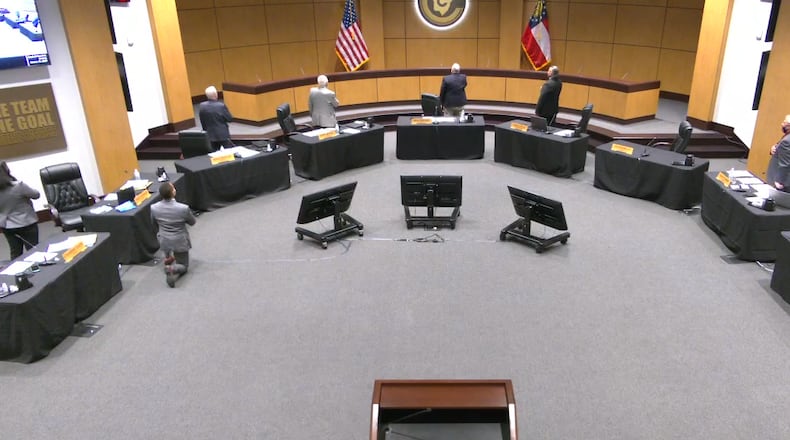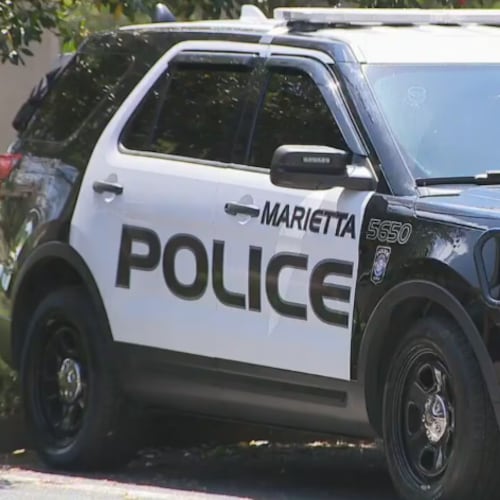A Cobb County School Board member used a polarizing gesture to publicize his concerns about inmate deaths at the Adult Detention Center.
Dr. Jaha Howard took a knee during the Pledge of Allegiance at the school board’s Oct. 15 meeting. Howard told The Atlanta Journal-Constitution that his timing coincided around the one-year anniversary of the death of Kevil Wingo, an inmate who died Sept. 29, 2019, at the Cobb County Adult Detention Center.
Howard said he took a knee because he has “deep concerns about the justice system, incarceration and other aspects of systemic racism.”
“I’ve watched others use their platform to make a strong statement opposing racism, and the Kevil Wingo case in our own backyard has troubled me so much that it seemed appropriate for me to use my platform," he said.
Wingo was pronounced dead after he was found unresponsive in an isolation cell at the jail. An autopsy concluded the 36-year-old died from complications of a perforated gastric ulcer. His family has filed a lawsuit last month in the U.S. District Court for the Northern District of Georgia against Wellstar Health System, six nurses and three Cobb County Sheriff’s Office deputies, saying his pleas for help inside the jail were ignored.
Thursday’s meeting was the first in-person meeting Cobb school board members have held since February when the coronavirus pandemic reached the United States. The school district only allowed board members and Superintendent Chris Ragsdale in the meeting room, and set up another room at the central office building where the public could watch the live stream of the meeting.
School Board member Randy Scamihorn told The Atlanta Journal-Constitution that he didn’t see Howard take a knee during the Pledge and that he didn’t know about it until after the meeting. Scamihorn said he was initially “puzzled” by Howard’s actions, but said he would defer to his colleague’s constituents for any opinions.
“I’ll certainly say this: we’ve had controversial board members in the past, as well as other politicians, and I’m sure we’ll have controversial politicians in the future," he said.
The act of taking a knee was started in 2016 by former NFL quarterback Colin Kaepernick and adopted by other athletes to protest racism and police brutality against Black people. The act of kneeling on the sideline during the anthem drew widespread criticism, including from President Donald Trump who called on team owners to fire players who didn’t stand for the anthem.
Kaepernick never played in the NFL again. It wasn’t until the 2020 protests against police killings of Black people that the league apologized for not listening to players' concerns.
Howard said he’s received a lot of positive encouragement and support and a few “angry” emails. The board member said he loves the U.S. enough to call out white supremacy, which he described as a “cancer that keeps us from reaching our true potential."
“Since racial hierarchy fundamentally stands in conflict with loving God and our neighbor, I commit to actively working against systemic racism in every space,” he said.
About the Author
Keep Reading
The Latest
Featured




